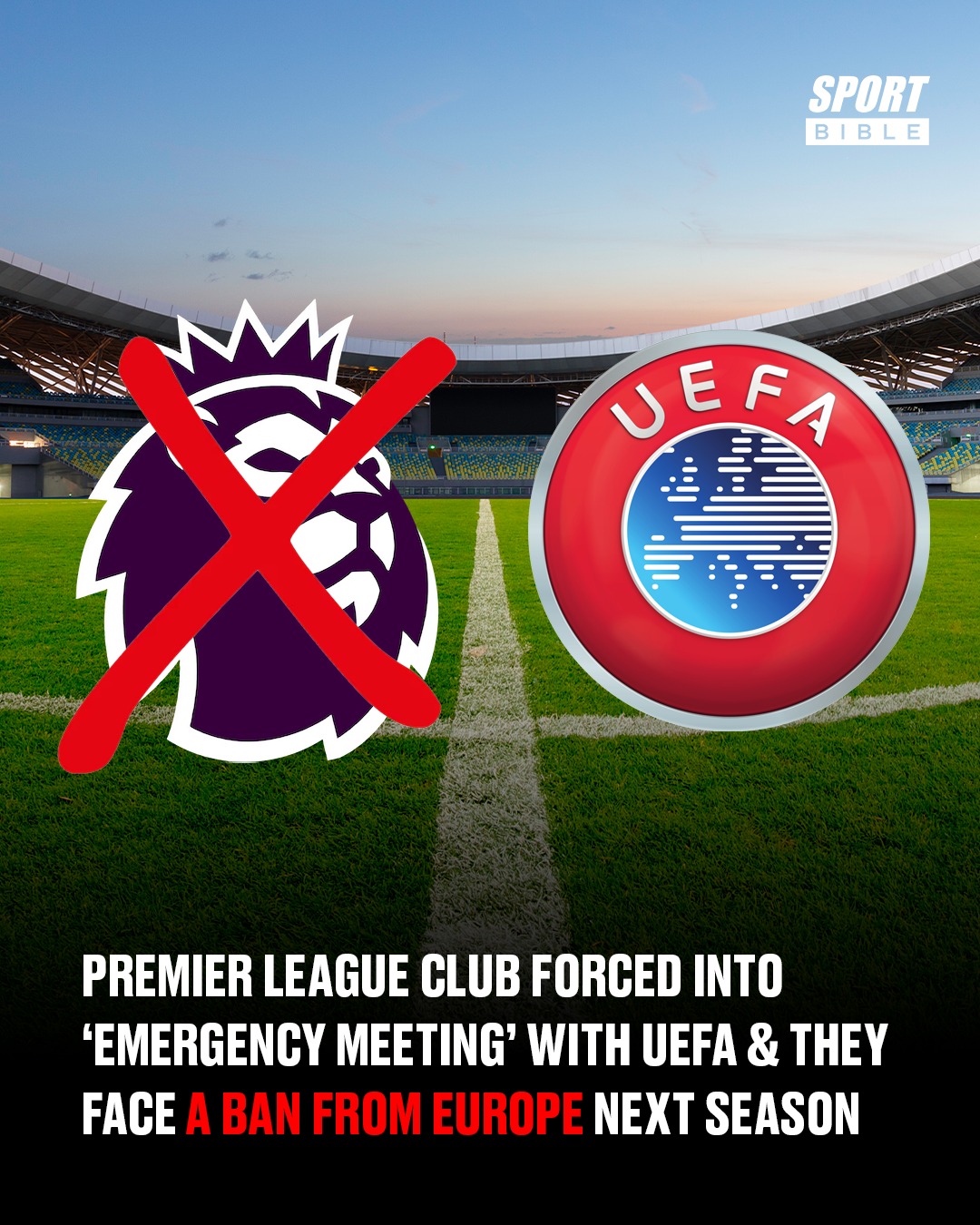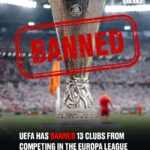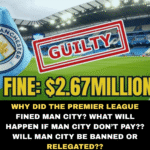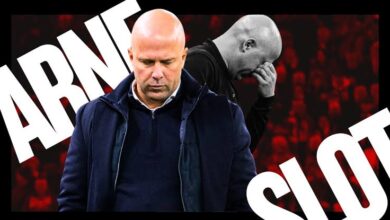Premier League club forced to hold ’emergency meeting’ with UEFA amid fears they could be banned from Europe

The landscape of European football has become increasingly complex as Premier League clubs navigate a maze of UEFA regulations, multi-club ownership rules, and financial compliance requirements. Recent developments have thrust several high-profile English teams into uncertainty regarding their European competition participation, highlighting the intricate web of modern football governance and the unintended consequences of ambitious ownership structures.
Crystal Palace’s Europa League Dilemma: A First-Time European Adventure Under Threat
Crystal Palace’s historic FA Cup triumph last month marked a watershed moment for the South London club. Their stunning 1-0 victory over Manchester City at Wembley not only delivered their first major trophy but also secured their maiden voyage into European competition through Europa League qualification. However, what should have been a celebration of unprecedented success has transformed into a complex legal and regulatory battle that threatens to derail their European dreams before they even begin.
The Eagles are scheduled to hold an emergency summit with UEFA officials on Tuesday, as reported by the Daily Mail’s Mike Keegan, with their Europa League participation hanging in the balance. The issue stems from the intricate ownership structure surrounding majority shareholder John Textor, whose business interests span multiple European football clubs, creating potential conflicts under UEFA’s multi-club ownership regulations.
The Textor Ownership Web
American businessman John Textor’s football empire presents a fascinating case study in modern sports investment strategies. Through his Eagle Holdings Group, Textor maintains approximately 45% ownership of Crystal Palace while simultaneously holding majority control of French club Olympique Lyonnais. This dual ownership structure has created a regulatory nightmare as both clubs have qualified for the same European competition – the Europa League.
Lyon secured their Europa League berth by finishing sixth in Ligue 1, while Palace earned their spot through FA Cup glory. UEFA’s regulations explicitly prohibit two clubs owned by the same entity from competing in identical European competitions, creating an immediate conflict that requires resolution before the new season begins.
The regulatory framework is designed to maintain competitive integrity and prevent any potential manipulation of results or strategic advantages that could arise from common ownership. These rules have become increasingly relevant as multi-club ownership models have proliferated throughout European football, with investors seeking to maximize their influence and returns across multiple markets.
Palace’s Confident Position
Despite the regulatory challenges, Crystal Palace officials remain confident about their European participation. The club’s position rests on a crucial technicality regarding voting rights and decision-making authority. While Textor holds a 45% shareholding in Palace, he reportedly controls only 25% of the voting rights and “does not make decisions in his own right,” according to sources close to the situation.
This distinction between ownership percentage and voting control could prove pivotal in UEFA’s assessment. The organization’s regulations focus heavily on actual control and influence rather than pure financial investment. If Palace can successfully demonstrate that Textor lacks effective control over the club’s operations and decisions, they may avoid sanctions despite his significant financial stake.
The club has officially declined to comment on the proceedings, maintaining a strategic silence while their legal and administrative teams work behind the scenes to resolve the matter. This approach reflects the high stakes involved and the potential ramifications of any public statements that could complicate their position with UEFA.
The Brondby Complication
The situation becomes even more complex when considering the broader ownership connections within the Palace structure. Co-owner David Blitzer, who holds approximately 10% of the shareholding at Selhurst Park, maintains majority ownership of Danish club Brondby. This additional ownership link creates a potential secondary conflict, as Brondby has qualified for the Europa Conference League by finishing third in the Danish Superliga.
Should Palace’s Europa League participation be compromised, the Conference League could represent an alternative European pathway. However, Blitzer’s Brondby connection could potentially block this option as well, creating a scenario where Palace might be entirely excluded from European competition despite their historic FA Cup achievement.
Potential Cascading Effects
The resolution of Palace’s case could trigger a domino effect throughout English football’s European qualification structure. UEFA regulations stipulate that when ownership conflicts arise, the club finishing in the higher league position receives priority for the contested European spot. In this case, Lyon’s sixth-place finish in Ligue 1 would theoretically take precedence over Palace’s cup-winner status, though the specific interpretation of these rules in Palace’s unique situation remains unclear.
If a worst-case scenario materializes and Palace loses their Europa League berth, the ripple effects could benefit other English clubs. Nottingham Forest could potentially be “promoted” from the Conference League to the Europa League, while Brighton might inherit the vacated Conference League position through their eighth-place Premier League finish. Such scenarios demonstrate the interconnected nature of European qualification and how one club’s regulatory issues can impact the broader competitive landscape.
Chelsea’s Financial Compliance Challenges: UEFA’s Loophole Crackdown
While Crystal Palace battles ownership-related issues, Chelsea faces a different but equally significant challenge regarding UEFA’s financial compliance requirements. The Blues’ aggressive spending strategy under Todd Boehly’s ownership has attracted regulatory scrutiny, particularly regarding creative accounting methods used to navigate financial fair play regulations.
The Sister Company Strategy
Chelsea’s financial strategy has involved several controversial transactions designed to improve their financial position relative to UEFA’s sustainability requirements. The club generated £76.5 million from the sale of two hotels to sister companies and transferred the Chelsea women’s team to their parent company for additional revenue recognition. These transactions, while technically legal at the time, exploited what many considered loopholes in UEFA’s financial regulations.
The fundamental issue lies in whether these inter-company transactions represent genuine economic activity or artificial manipulation designed to circumvent spending restrictions. UEFA’s Financial Fair Play rules aim to prevent clubs from operating at unsustainable losses while ensuring competitive balance across European football. When clubs can generate artificial revenue through related-party transactions, it potentially undermines these objectives.
UEFA’s Response and New Regulations
According to reports from The Times, UEFA has moved decisively to close these perceived loopholes. The organization has confirmed that such inter-company transactions will no longer be accepted as legitimate revenue sources for financial compliance purposes. This regulatory tightening reflects UEFA’s ongoing evolution in response to increasingly sophisticated attempts to circumvent spending restrictions.
An independent panel will assess whether Chelsea has breached any regulations, with potential sanctions ranging from warnings and fines to exclusion from European competition. Importantly, any punishments would only take effect from the following season, allowing Chelsea to continue their current European campaign while the investigation proceeds.
Chelsea’s Position and Recent Developments
Chairman Todd Boehly has consistently maintained that Chelsea remains on course to comply with UEFA regulations and avoid sanctions. The club has significantly reduced its spending compared to the extraordinary £1 billion outlay during their first two summers under new ownership. This summer’s transfer activity, while still substantial at nearly £200 million, represents a more measured approach to squad building.
The club has also generated over £100 million through strategic sales, including high-profile departures like midfielder Conor Gallagher and defender Ian Maatsen. These sales demonstrate an attempt to balance the books while maintaining competitive ambitions, though whether this approach will satisfy UEFA’s requirements remains to be seen.
The Conference League Success Story: Chelsea’s Historic Achievement
Despite the regulatory challenges, Chelsea has achieved remarkable success in European competition this season. Their 4-1 victory over Real Betis in the Conference League final marked a historic milestone, making them the first club to win all five of UEFA’s men’s senior club competitions. This achievement encompasses the Champions League, Europa League, Conference League, Super Cup, and the defunct Cup Winners’ Cup.
A Dramatic Final Performance
Chelsea’s Conference League triumph showcased their resilience and quality on the biggest stage. After falling behind to Betis in Wroclaw, the Blues responded with a scintillating second-half performance that demonstrated their championship pedigree. Enzo Fernandez’s equalizer sparked the comeback, with Nicolas Jackson putting Chelsea ahead through excellent creative work from Cole Palmer.
Palmer’s Man of the Match performance highlighted his emergence as a key figure in Chelsea’s future, while his post-match interview provided entertainment value that captured fans’ attention worldwide. Jadon Sancho added a third goal before Moises Caicedo completed the scoring in stoppage time, capping off a dominant display that belied the early deficit.
Financial and Competitive Implications
Chelsea’s Conference League victory carries significant financial rewards, with the club receiving £5.9 million in prize money – notably the same amount Manchester United earned for finishing as runners-up in the Europa League final. This financial boost provides some offset to their substantial spending while demonstrating the increasing value of UEFA’s third-tier competition.
The victory also guarantees Europa League qualification for the following season, though Chelsea’s fourth-place Premier League finish has already secured Champions League participation. This means their Europa League berth becomes available for redistribution, potentially benefiting other English clubs in the European qualification chain.
Super Cup Exclusion
Despite their Conference League success, Chelsea will not participate in the UEFA Super Cup, which remains reserved for the champions of Europe’s top two club competitions. The 2025 Super Cup will feature Europa League winners Tottenham against either Paris Saint-Germain or Inter Milan, depending on the Champions League final result. This exclusion highlights the perceived hierarchy within European football, where the Conference League, despite its growing prestige, remains the third tier of continental competition.
Tottenham’s European Qualification Success
Tottenham Hotspur’s Europa League triumph over Manchester United has secured their return to Champions League football, providing a significant boost to their ambitions and financial position. This victory represents more than just a trophy; it guarantees participation in Europe’s premier club competition and the substantial revenue streams that accompany it.
The Final Victory
Spurs’ victory over Manchester United in the Europa League final marked a crucial moment in their recent history. The North London club has struggled for consistency in recent seasons, making their European success all the more valuable. The triumph ensures they join Liverpool and Arsenal in representing England in next season’s Champions League, creating an intriguing dynamic for domestic competition.
Impact on English Football’s European Allocation
Tottenham’s success has implications for English football’s overall European representation. With Spurs securing Champions League qualification through their Europa League victory, additional spots become available for other Premier League clubs through various scenarios. This creates opportunities for teams like Brighton and Brentford, who could find themselves in European competition for the first time in their recent history.
The Broader Context: Multi-Club Ownership in Modern Football
The challenges facing Crystal Palace reflect broader trends in football ownership and governance. Multi-club ownership models have become increasingly popular among investors seeking to maximize their influence and returns across different markets. However, these structures create complex regulatory challenges that UEFA and other governing bodies are still learning to navigate.
The Growth of Multi-Club Networks
Modern football has witnessed the emergence of extensive multi-club networks spanning multiple continents. City Football Group’s portfolio includes Manchester City, New York City FC, Melbourne City, and numerous other clubs worldwide. Similar models have been adopted by various investors, creating intricate webs of ownership and influence that challenge traditional regulatory frameworks.
These networks offer potential benefits including player development pathways, shared resources, and strategic market positioning. However, they also raise concerns about competitive integrity, particularly when clubs within the same network compete against each other or in the same competitions.
Regulatory Evolution
UEFA’s response to multi-club ownership reflects the organization’s ongoing evolution in response to changing industry dynamics. The regulations prohibiting commonly-owned clubs from competing in the same competition represent just one aspect of a broader effort to maintain competitive integrity while accommodating modern ownership structures.
The Crystal Palace case could establish important precedents for how UEFA interprets and enforces these regulations. The distinction between ownership percentage and actual control could become a crucial factor in future assessments, potentially encouraging more sophisticated ownership structures designed to comply with the letter, if not the spirit, of the regulations.
Financial Fair Play Evolution
The challenges facing Chelsea highlight the ongoing evolution of Financial Fair Play regulations and UEFA’s efforts to close perceived loopholes. The organization’s move to prohibit certain inter-company transactions represents a significant tightening of financial oversight designed to prevent artificial revenue inflation.
The Arms Race of Financial Innovation
Football clubs and their advisors have become increasingly sophisticated in their approaches to financial compliance, often finding creative ways to work within existing regulations. This has created an ongoing arms race between regulatory authorities and club financial departments, with each side adapting to the other’s moves.
UEFA’s decision to crack down on sister company transactions reflects recognition that the original regulations may not have anticipated all the ways clubs might seek to circumvent spending restrictions. This ongoing evolution suggests that Financial Fair Play will continue to develop as new challenges emerge.
Long-term Implications
The long-term implications of UEFA’s regulatory tightening extend beyond individual clubs to the broader structure of European football. Stricter financial oversight could limit the ability of wealthy owners to rapidly transform clubs through massive spending, potentially creating a more level playing field but also limiting competitive mobility.
The Future of European Competition Access
The various challenges facing Premier League clubs highlight the complex nature of European competition access in the modern era. What was once a relatively straightforward system based on domestic performance has evolved into a intricate web of regulations covering ownership, finances, and competitive integrity.
Potential Reform Scenarios
UEFA faces ongoing pressure to reform its competition structure and qualification systems to address the changing nature of football ownership and finance. Potential changes could include more flexible approaches to multi-club ownership, revised financial regulations, or expanded competition formats that accommodate more clubs.
The Conference League’s introduction has already demonstrated UEFA’s willingness to adapt its competition structure, providing additional opportunities for clubs to participate in European football. Further evolution seems likely as the organization balances various stakeholder interests and regulatory objectives.
Impact on Club Strategy
These regulatory challenges are influencing how clubs approach their strategic planning, from ownership structures to transfer policies. Organizations must now consider not just sporting and financial objectives but also regulatory compliance across multiple jurisdictions and competition frameworks.
The Crystal Palace and Chelsea cases serve as important reminders that success on the pitch does not guarantee European participation if regulatory requirements are not met. This reality is shaping how clubs structure their operations and plan for the future.
Conclusion
The current European football landscape presents unprecedented challenges for Premier League clubs seeking to participate in continental competition. Crystal Palace’s ownership-related difficulties and Chelsea’s financial compliance issues demonstrate the complex regulatory environment that modern clubs must navigate.
These cases highlight the ongoing tension between commercial innovation and regulatory oversight in football. While multi-club ownership and creative financial strategies offer potential benefits, they also create risks that governing bodies are increasingly unwilling to tolerate.
The resolution of these current disputes will likely establish important precedents for future cases, shaping how UEFA interprets and enforces its regulations. For English football, the outcomes could significantly impact European representation and the broader competitive landscape.
As the sport continues to evolve, clubs, regulators, and other stakeholders must work together to develop frameworks that maintain competitive integrity while accommodating legitimate commercial innovation. The alternative – an ongoing arms race between increasingly sophisticated compliance strategies and ever-tightening regulations – benefits no one and could ultimately harm the sport’s development.
The coming months will reveal how these various challenges are resolved and what implications they hold for the future of European football competition. For Crystal Palace, Chelsea, and other affected clubs, the stakes could not be higher as they seek to balance sporting ambitions with regulatory compliance in an increasingly complex environment.















